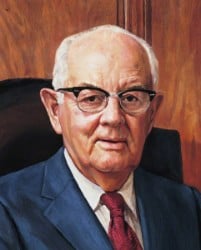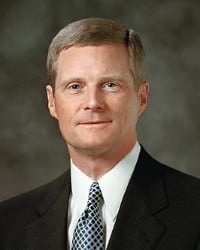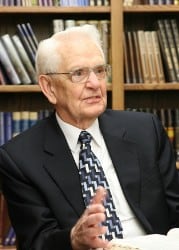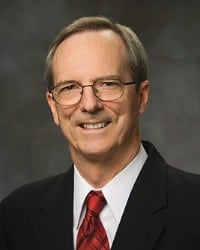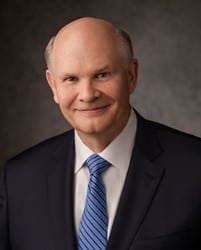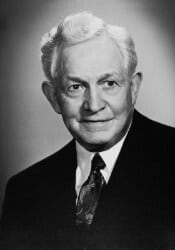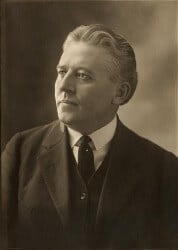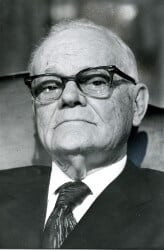“A great person is reverent. He will be deferential in a house of worship even though he be the only soul therein. No congregation was assembled when the Lord commanded Moses: “Put off thy shoes from off thy feet, for the place whereon thou standest is holy ground!” [See Exodus 3:5.] Presiding officers should plan so carefully that no whispering would be heard or seen on the stand. Parents should train and discipline their children and sit with them (except where class groups are supervised). Ushers should be trained to quietly care for seating with a minimum of disturbance. Attenders should arrive early, do their friendly greeting in subdued tones, slow their step, find seats toward the front, and sit in quiet contemplative mood. All should participate as fully as possible—singing with the singers, praying with him who prays, partaking of the sacrament with a grateful heart and a reconsecration to covenants previously made. An opportunity is given to follow sympathetically lessons that are taught, the sermons that are preached and the testimonies that are borne, judging not by eloquence but by sincerity. Here is a chance to drink deeply from fountain heads, for the humblest teacher or speaker will contribute thought which can be developed. As we quietly enter the door of the chapel we may leave behind us outside all criticisms, worries, and cares—all occupational, political, social, and recreational plans—and calmly give ourselves to contemplation and to worship. We may bathe in the spiritual atmosphere. We may devote ourselves to learning, repenting, forgiving, testifying, appreciating, and loving.”
Spencer W. Kimball
| “Chapter 15: We Should Be a Reverent People,” Teachings of Presidents of the Church: Spencer W. Kimball (2006), 154–64
Topics: Reverence, Sabbath Day, Sacrament
